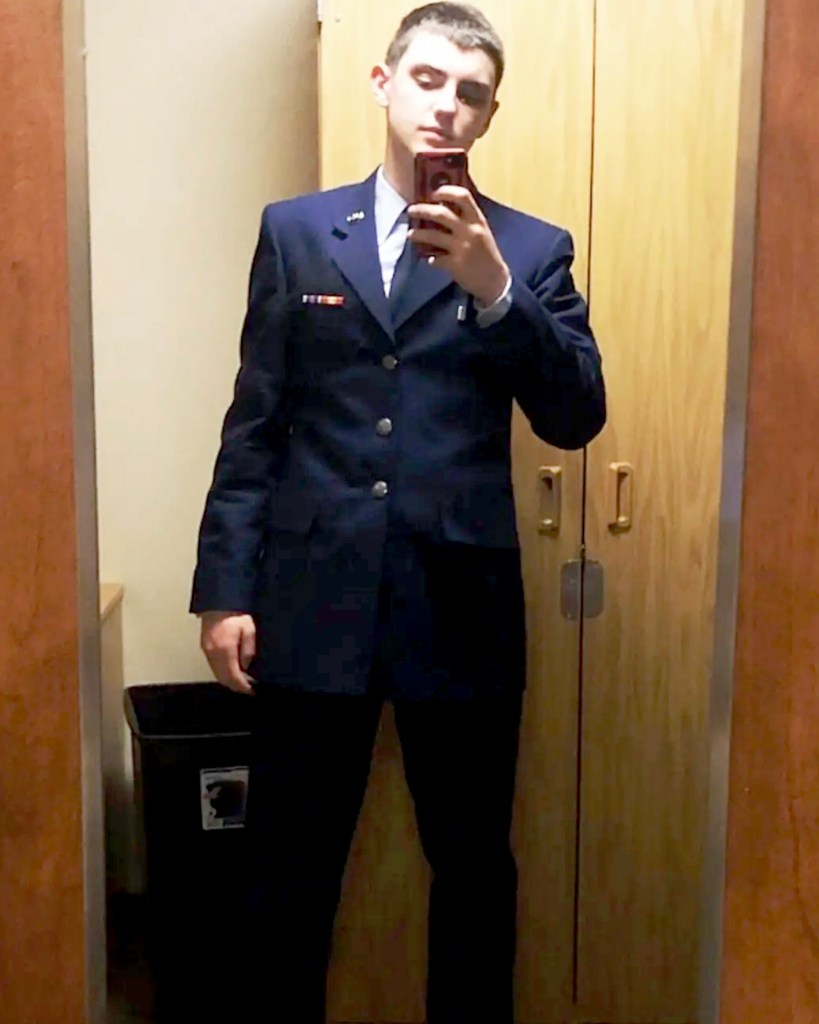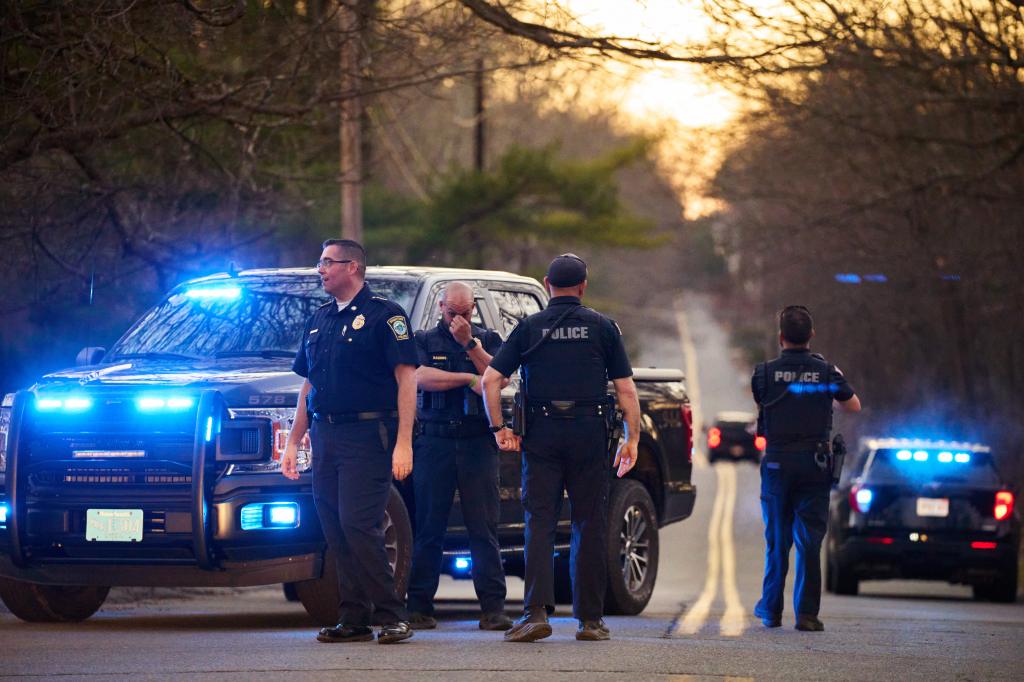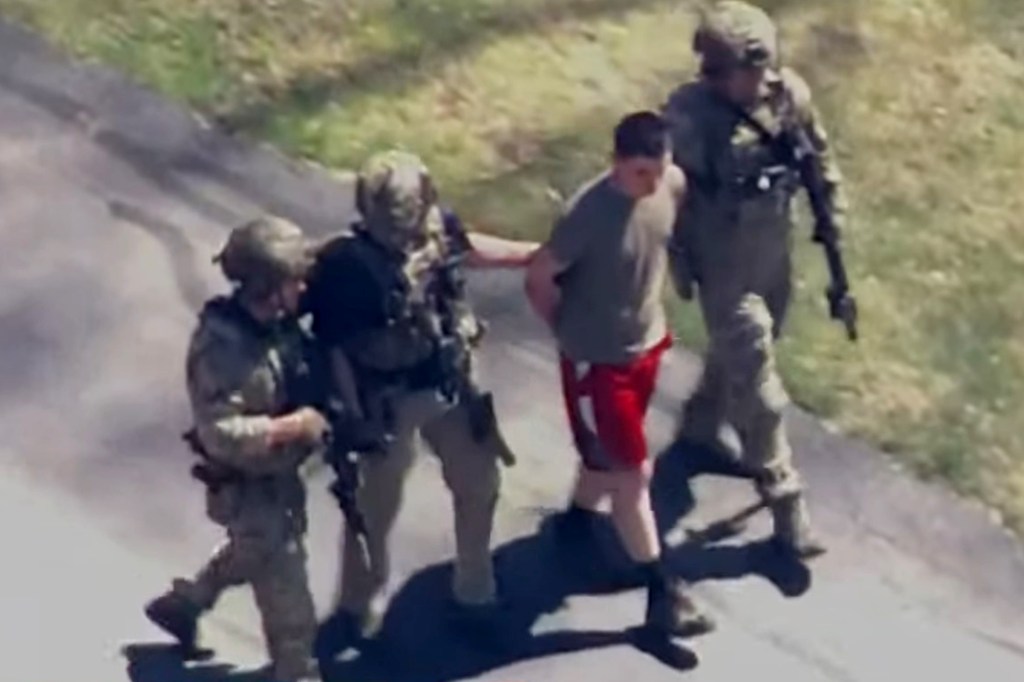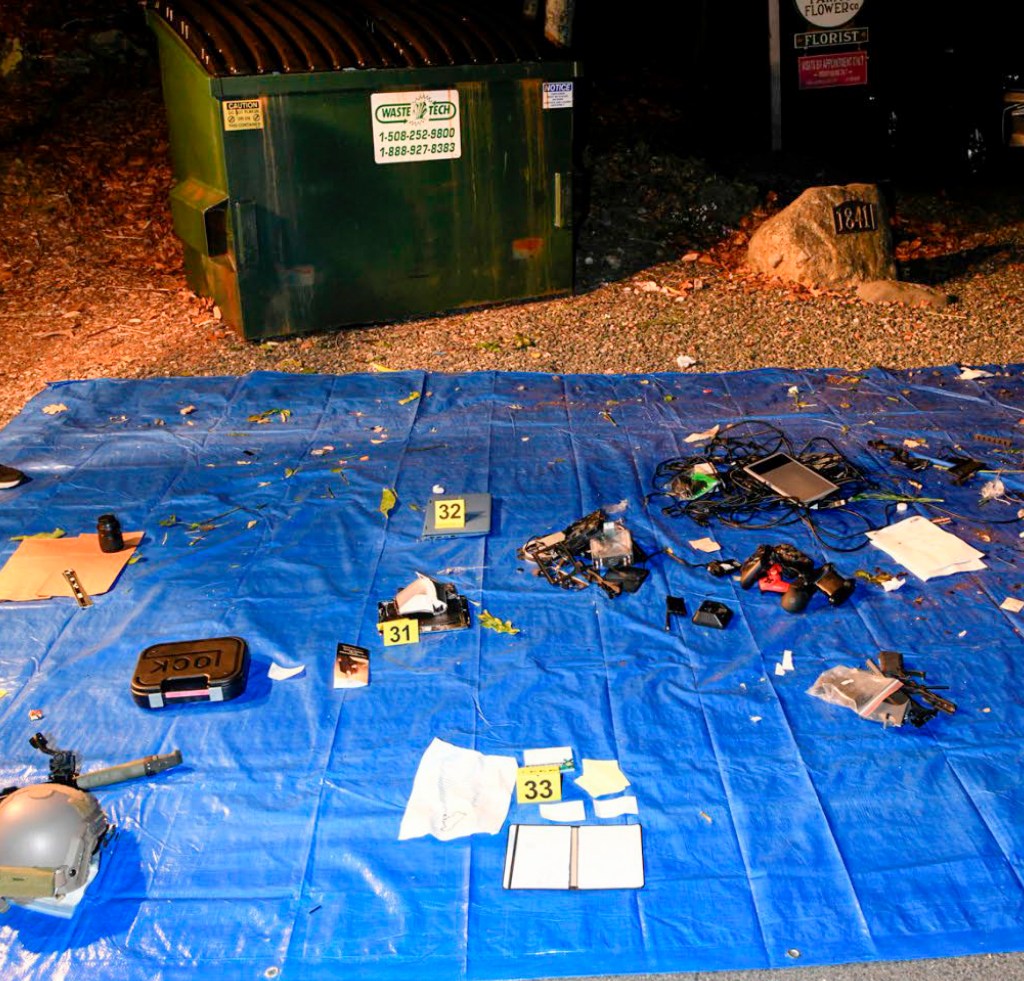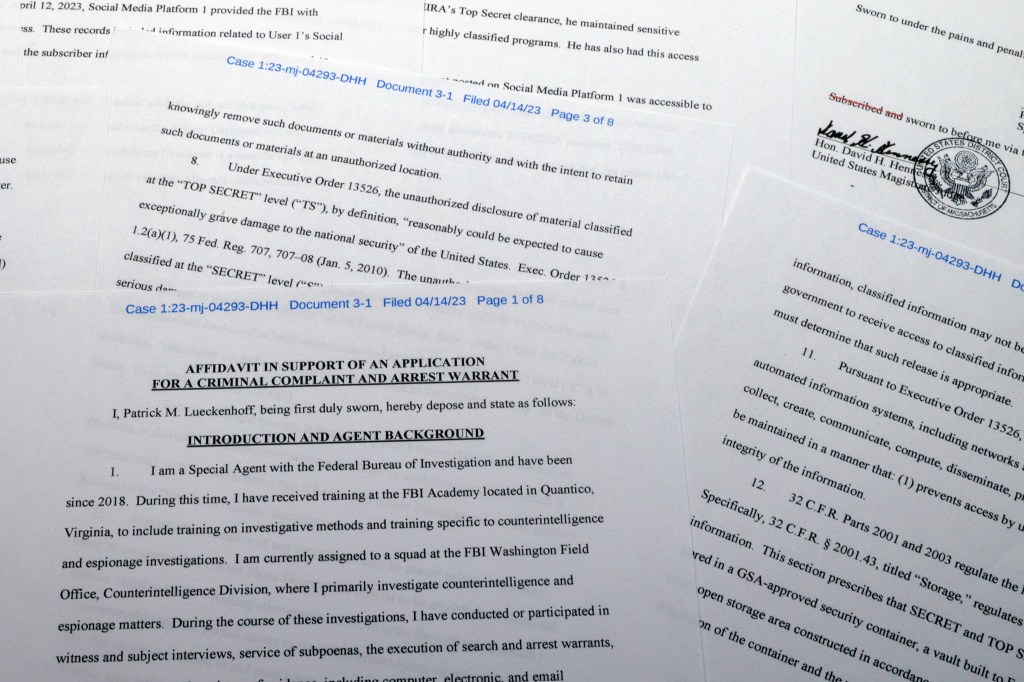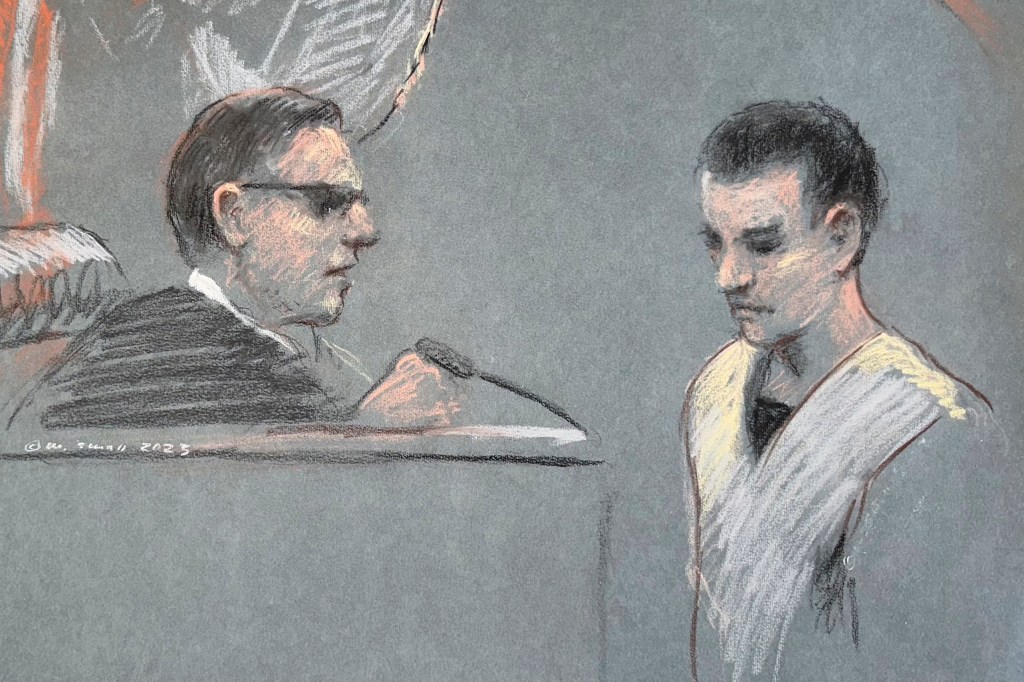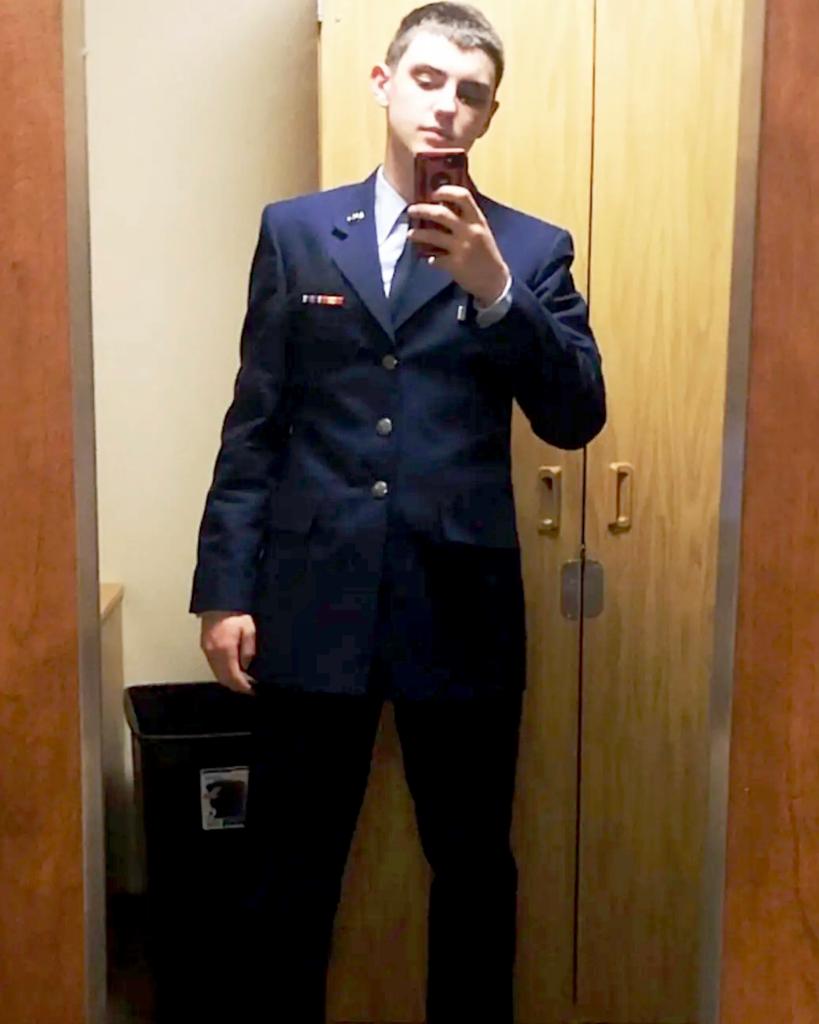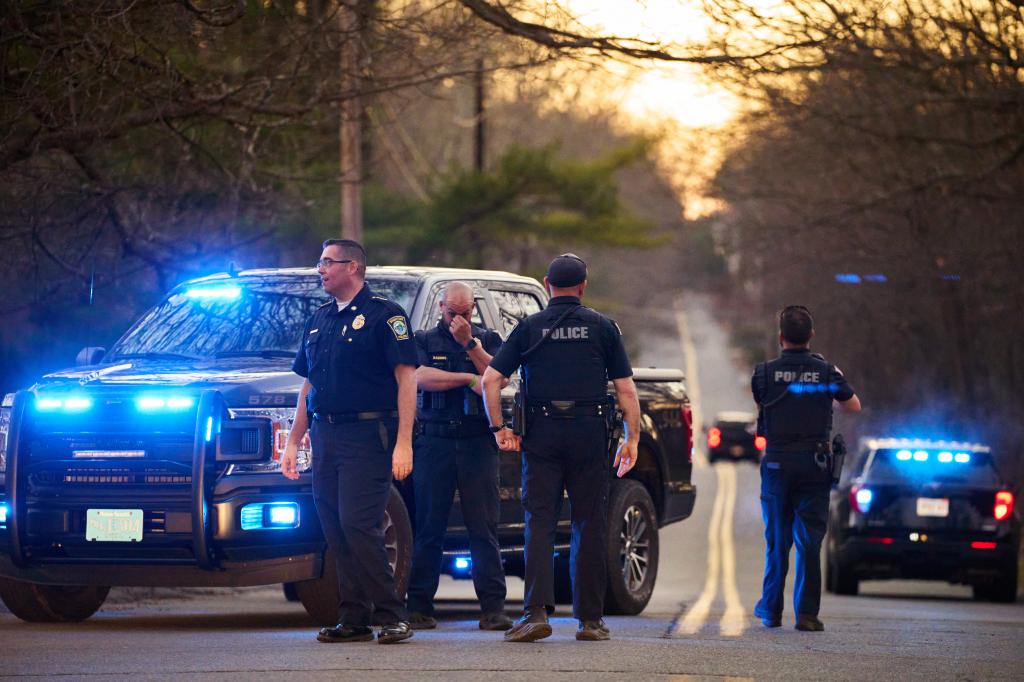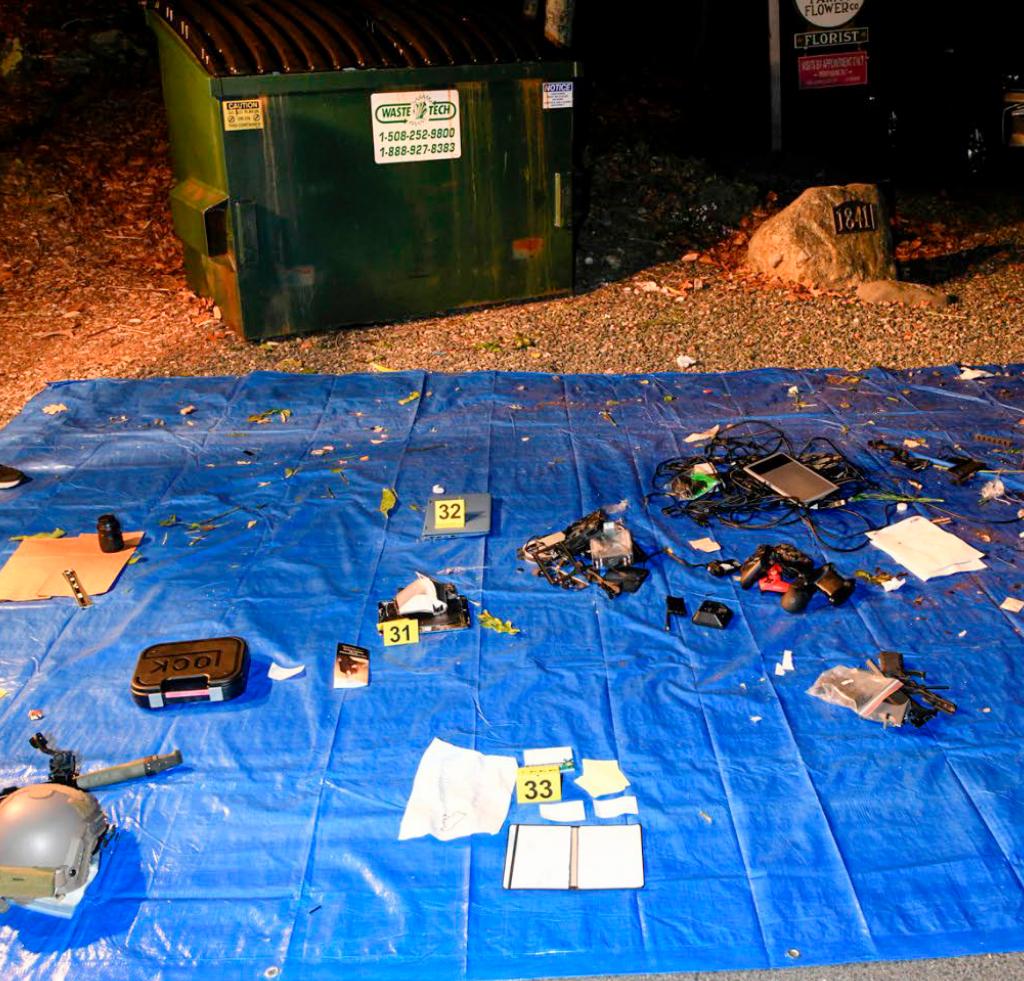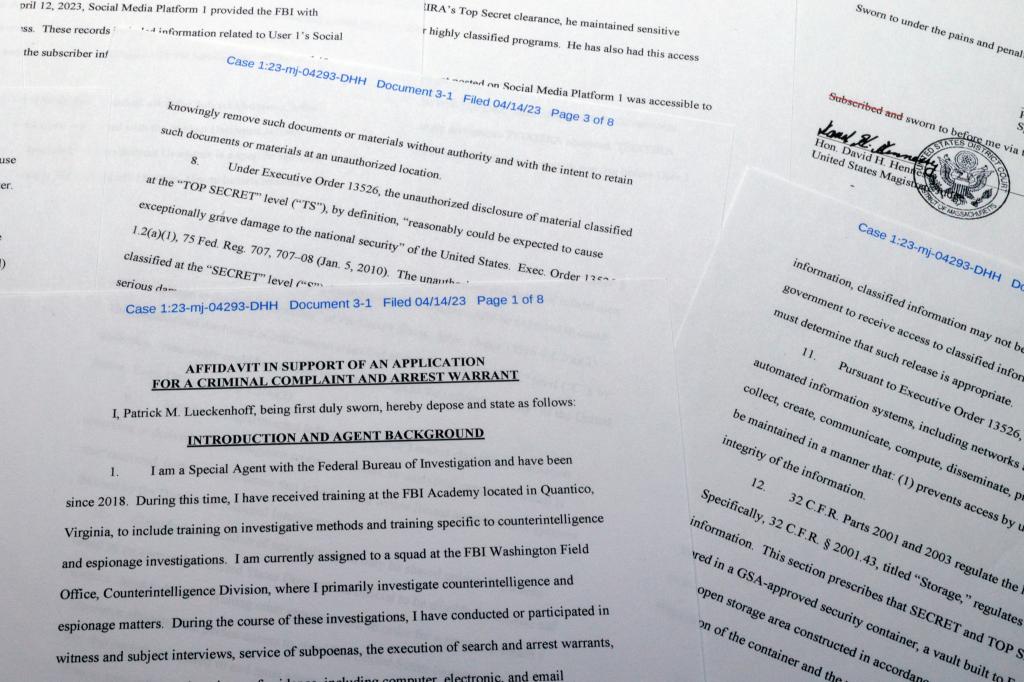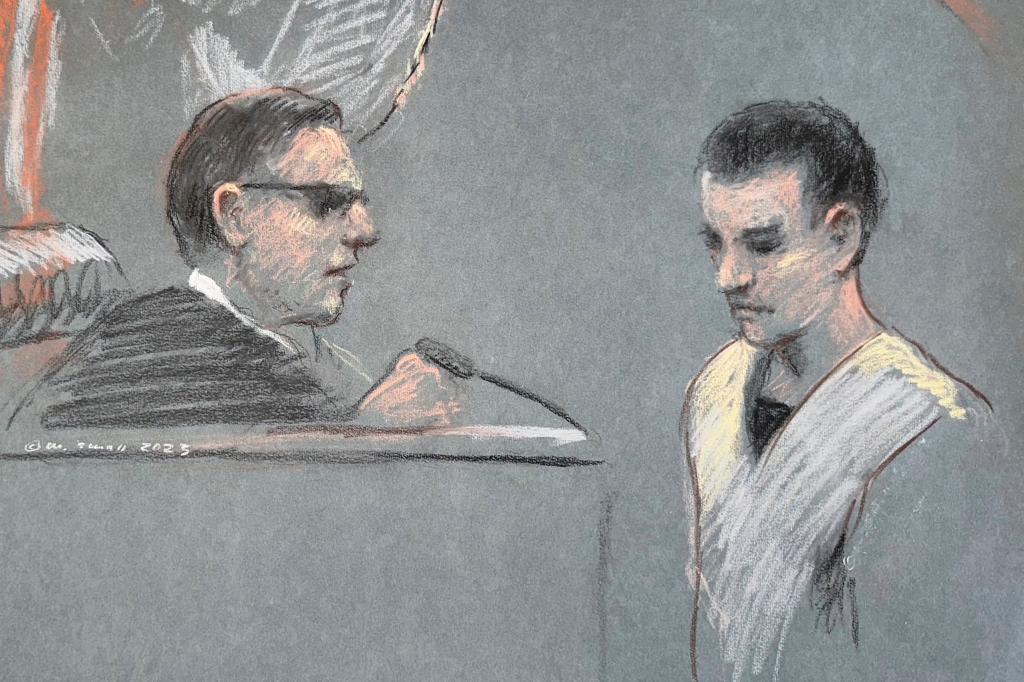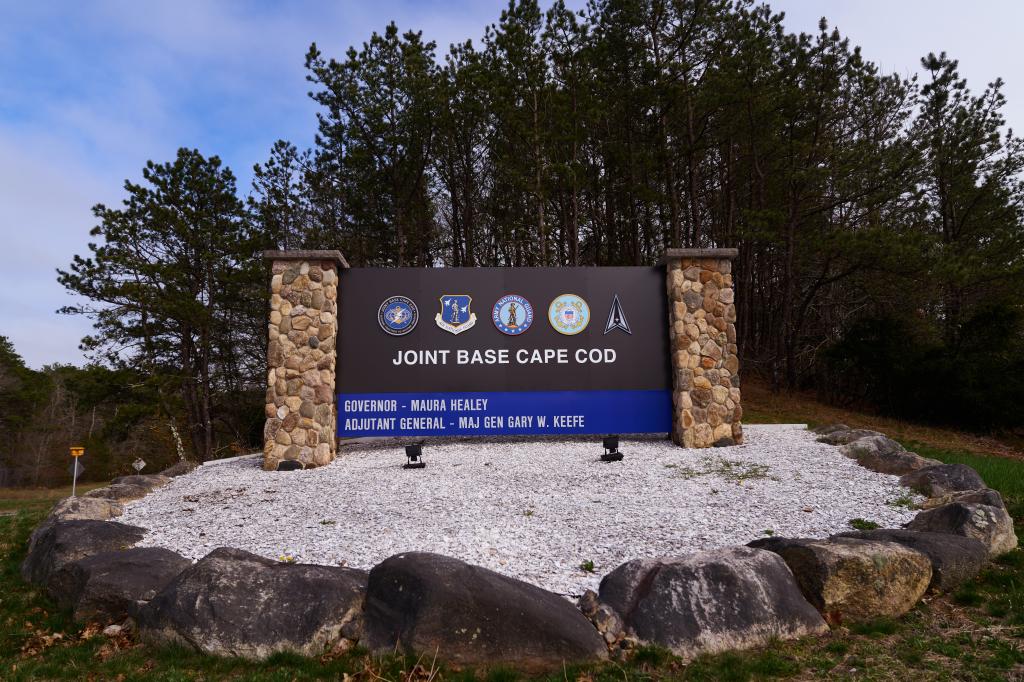Pentagon leaker Jack Teixeira got intel briefings despite low-level job, bombshell Air Force investigation reveals
WASHINGTON – The 21-year-old Massachusetts Air National Guardsman who posted highly sensitive Pentagon documents online was privy to weekly intelligence briefings — despite the fact that he was only meant to maintain HVAC units and answer phones, according to a bombshell Air Force investigation.
The access given Jack Teixeira was just one of several glaring mistakes that led to disciplinary measures against 15 of his fellow Guard members — including his former unit commander — for failing to sufficiently supervise troops and alert proper authorities of concerning espionage-like activity.
Teixeira was indicted in June on six counts of willful retention and transmission of national military information after illegally obtaining and sharing dozens of classified documents online – including some papers related to Ukrainian troop positions. Teixeira pleaded not guilty to the charges.
Monday’s report found that the failures of Teixeira’s colleagues and superiors in the 102nd Intelligence Wing enabled the private to collect and disclose the sensitive information for more than a year completely undetected.
“Evidence indicates some members in Teixeira’s unit, reporting chain and leadership had information about as many as four separate instances of his questionable activity,” the report said. “A smaller number of unit members had a more complete picture of Teixeira’s intelligence-seeking behaviors and intentionally failed to report the full details of these security concerns/incidents as outlined in DoD security policies, fearing security officials might ‘overreact.’
“Had any of these members come forward, security officials would likely have facilitated restricting systems/facility access and alerted the appropriate authorities, reducing the length and depth of the unauthorized and unlawful disclosures by several months,” it added.
Though Teixeira was arrested in April, he reportedly began posting rewritten “paragraphs of texts” containing classified information on Discord, a social media platform for gamers, as early as February 2022.
After going undetected for nearly a year, Teixeira’s leaks escalated in January, when he began “posting photographs of documents that contained Top Secret classification markings and described the status of a current military conflict, including troop locations.”
‘Questionable activity’
While the report found Teixeira acted alone in leaking the material, investigators also revealed “a number of factors, both direct and indirect, that contributed to the unauthorized disclosures.”
Among those was an “improper” initiative by Teixeira’s unit that “encouraged [IT specialists] to receive weekly intelligence briefing to better understand the mission and the importance of keeping classified networks operating.”
The problem, the report noted, is that lower-ranking airmen like Teixeira were let in on sensitive national security information that they had no “need to know.”
“This ‘know your why’ effort was improper in that it provided higher level classified information than was necessary to understand the unit’s mission and created ambiguity with respect to questioning an individual’s need to know,” the report stated.
During one such briefing in October 2022, Teixeira “asked very detailed questions and even attempted to answer questions using suspected TS-SCI information” that he should not have known, the report said.
While the suspicious activity raised red flags among leadership at the briefing, the airman shrugged off their questions by claiming the information “was also available via ‘open sources.'”
“Contrary to his assertion, the information was not believed to be publicly available and Teixeira’s supervisor was again advised of his suspected intelligence-seeking behavior,” the report said.
In response, leaders ordered Teixeira “to ‘cease and desist’ intelligence ‘deep dives,'” but did not report the incident to “the proper security official,” according to the report.
However, the October incident was not the first time the private had been caught knowing too much.
In “July or August of 2022”, a member of Teixeira’s unit noticed him viewing top secret documents on the military’s secure, private intranet. But while the incident was reported to Teixeira’s supervisor, “the incident was not documented in writing.”
That September, Teixeira was again caught “viewing intelligence products and … writing information on a post-it note,” according to the report.
“Teixeira was confronted about the note and directed to shred it,” investigators said. “However, it was never verified what was written on the note or whether it was shredded.”
While that incident was documented in a written memorandum for Teixeira’s service record and he was ordered to “cease all research where he did not have a need to know,” it was yet again not reported to the proper security official in charge of reviewing insider threats.
The behavior continued into late January of this year, when a fellow Guardsman again caught Teixeira “viewing intelligence content again after being previously ordered to cease and desist.” Again, a supervisor was informed and added another memorandum to the private’s record, but this time “more senior members of the squadron’s leadership” were also notified and “made aware of three of the four preceding incidents.”
While that information was reported to security officials, they were given “a substantially minimized version of the concerns” and did not provide copies of the memorandums “or an accurate description of security concerns.
“As a result, additional available security actions were not taken and no further inquiry or investigation occurred,” the report said. “After interviewing higher levels of the supervisory chain, it appears knowledge of these security incidents was not fully disclosed above the squadron level.”
Investigators further noted that the accusations against Teixeira had been downplayed “after some internal discussion.”
“Three individuals in the unit who understood their duty to report specific information regarding Teixeira’s intelligence-seeking and insider threat indicators to security officials, intentionally failed to do so,” it said.
Contributing factors
Investigators also identified several policy and cultural failures – from misconceptions to deficient supervising – that enabled Teixeira to conduct his crimes.
For example, in addition to the unit’s repeated failure to follow Pentagon and Air Force guidance that “actual and potential compromises … must be reported to the proper security official,” some troops “mistakenly believed they could report violations to their supervisors” instead.
Investigators further alleged that some in the unit conflated the ability to access sensitive documents with the authority to do so. While Teixeira’s position as IT support granted him access to secure networks, he did not have approval to actually view their secret contents.
“Mistakenly, many personnel disregarded the requirement to have a valid need to know and did not ensure the information was properly determined to be essential to effectively carry out their official duties and assignments,” the report said. “Computer/IT specialists require system access to perform system maintenance, but do not require access to intelligence content or products to maintain the system.”
Additionally, there was a lack of oversight during Teixeira’s night shift that enabled him to take advantage of his network access, according to the report, which found “any” person working overnight at Otis Air National Guard Base on Cape Cod “ample opportunity to access [secure] sites and print a high volume of products without supervision or detection.”
“When there were no intelligence missions at night, members of a three-person crew, like the one Teixeira was on, were the only personnel in the open-storage [top-secret/sensitive compartmentalized information] facility,” it said. “Further, no permission controls were in place to monitor print jobs, and there were no business rules for print products.”
Though the IT specialists’ “primary role was to ensure the Heating, Ventilation, and Air Conditioning system was operating properly and answer the phones,” they were sometimes “required to perform preventive maintenance inspections and other tasks, which required individuals to be on their own for hours, unsupervised in other parts of the facility.”
While the names of all 15 individuals punished for the failures were not publicly available Monday, the former commander of the 102nd Intelligence Wing, Col. Sean Riley, was removed from command as a result of the investigation.
Additionally, the commander of the unit’s subordinate Intelligence, Surveillance and Reconnaissance Group, Col. Enrique Dovalo, received a citation “for concerns with unit culture and compliance with policies and standards,” according to service officials.








